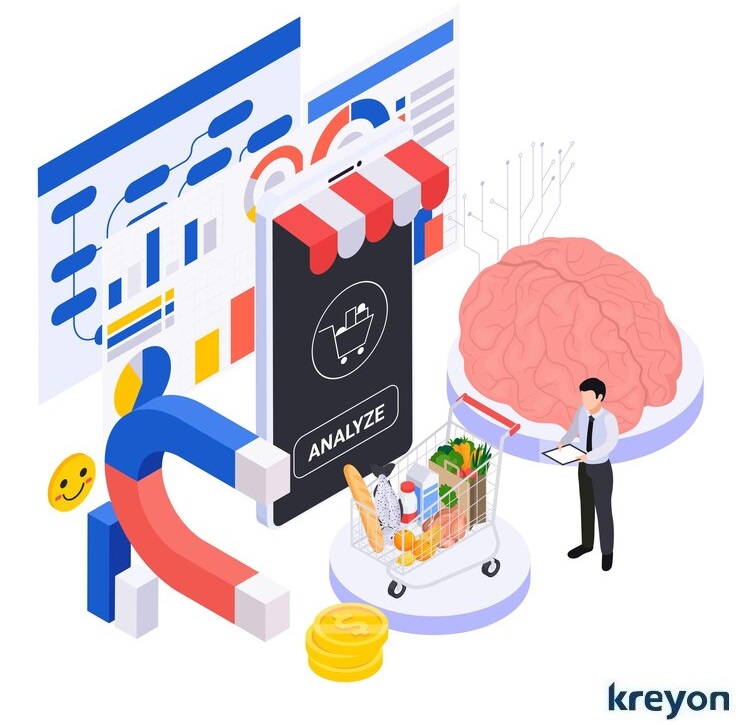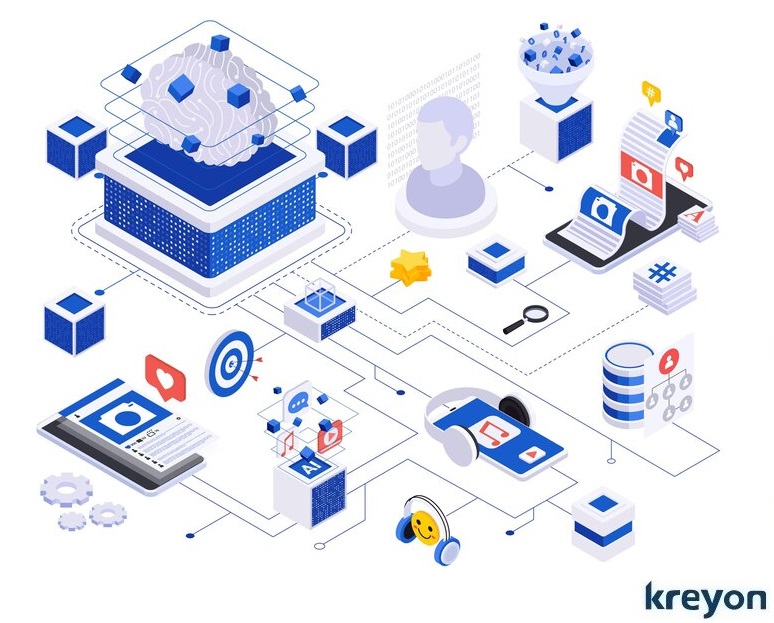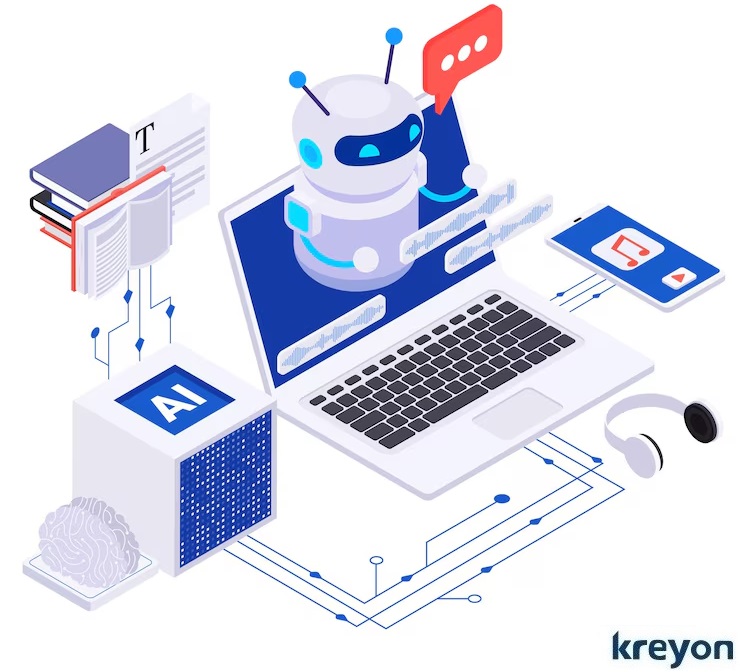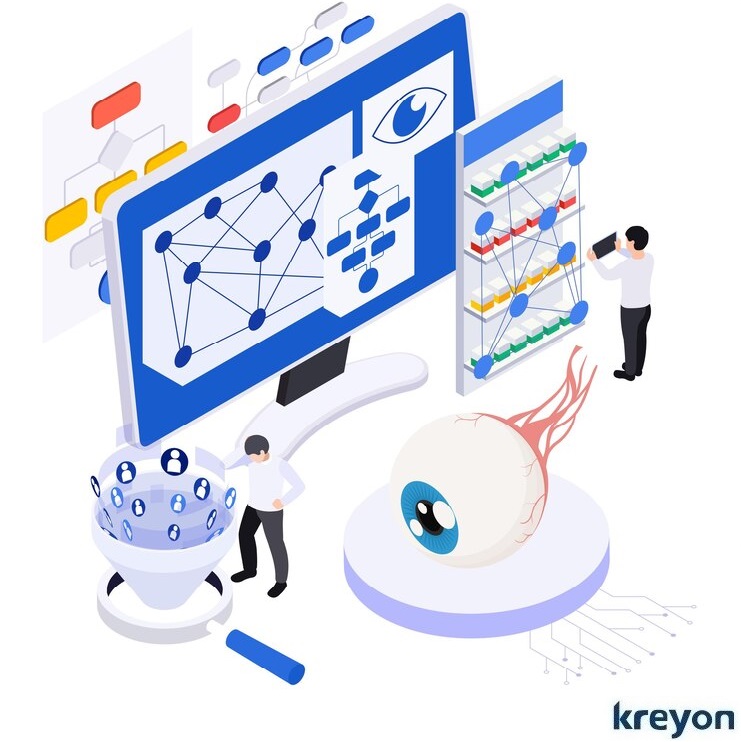Generative AI for ERP: A Comprehensive Guide to Strategic Applications

Among the myriad applications of AI in business software, Generative AI for ERP emerges as a transformative force, offering strategic opportunities to enhance ERP systems in unprecedented ways.
In the ever-evolving landscape of enterprise technology, the convergence of Artificial Intelligence (AI) and Enterprise Resource Planning (ERP) systems heralds a new era of innovation and efficiency.
Generative AI, a subset of AI that focuses on creating new content or data based on patterns and examples, holds immense promise for revolutionizing ERP software across various domains.
By leveraging generative AI capabilities, organizations can unlock strategic opportunities that drive operational excellence, empower decision-makers, and deliver superior business outcomes.
Generative AI presents several strategic opportunities for enhancing ERP (Enterprise Resource Planning) software systems. Here are some key areas where generative AI is being applied to improve ERP functionality & provide additional value to enterprises:
Automate Data Processing
Generative AI-powered optical character recognition (OCR) and natural language processing (NLP) algorithms automate data entry and document processing tasks within ERP systems.
By extracting data from invoices, purchase orders, and other documents, organizations can streamline administrative processes, reduce manual errors, and accelerate transaction processing times.
Natural language processing (NLP) models, powered by generative AI, can enhance language understanding and generation tasks across various enterprise applications.
This includes sentiment analysis, language translation, chatbots, virtual assistants, and conversational interfaces, improving customer interactions and operational efficiency.
By using machine learning organizations can tailoring interfaces, recommendations, and insights to individual users’ needs, organizations can enhance user engagement, productivity, and satisfaction.
This enables businesses to empower employees, streamline workflows, and drive adoption of ERP software across the organization using hidden data patterns.
Data Augmentation and Synthesis

Generative AI techniques, such as generative adversarial networks (GANs), can be employed for data augmentation and synthesis.
By generating synthetic data that closely resembles real-world data, enterprises can augment their datasets for training machine learning models, improve model generalization, and address data scarcity issues in certain domains.
AI can segment customers within ERP systems based on demographic data, purchase history, and behavioral patterns. AI algorithms can generate customer segmentation models, identify high-value customer segments, and recommend targeted marketing strategies to improve customer engagement and retention.
Workforce Management
HR Analytics and Workforce Planning: Generative AI can provide HR analytics and workforce planning capabilities within ERP systems for SMBs by analyzing employee data, performance metrics, and skills profiles.
AI algorithms can generate workforce analytics dashboards, identify talent gaps, and recommend training or hiring initiatives to optimize workforce productivity and engagement.
Generative AI can analyze employee skills data within ERP systems to identify skill gaps and training needs. AI algorithms can generate skill gap reports, recommend training programs, and track employee skill development over time. This helps enterprises optimize workforce capabilities and ensure alignment with business objectives.
AI can optimize resource allocation within ERP systems by analyzing resource availability, project schedules, and resource utilization patterns.
AI algorithms can generate resource allocation models, identify resource bottlenecks, and recommend optimal resource assignments to ensure projects are adequately staffed and deadlines are met efficiently.
Rich Customer Interactions

Generative AI can enhance CRM capabilities within ERP systems for SMBs by analyzing customer data, purchase history, and interactions.
AI algorithms can generate customer profiles, segment customers based on behavior and preferences, and recommend personalized marketing campaigns or follow-up actions to improve customer engagement and retention.
Generative AI can also perform sentiment analysis on social media data within ERP systems to gauge customer sentiment, brand perception, and market trends.
AI algorithms can generate sentiment analysis reports, identify emerging trends, and recommend marketing strategies to capitalize on positive sentiment or address negative feedback effectively.
Supplier Relationship Management (SRM)
Generative AI can optimize supplier relationship management within ERP systems for SMBs by analyzing supplier performance data, pricing trends, and contract terms.
AI algorithms can generate supplier scorecards, assess supplier risk levels, and recommend supplier selection or negotiation strategies to improve procurement efficiency and mitigate supply Generative AI can optimize inventory levels within ERP systems by analyzing demand forecasts, lead times, and inventory costs.
AI algorithms can also generate dynamic inventory optimization models, adjust reorder points and safety stock levels in real-time based on demand variability, supplier performance, and market conditions. This ensures optimal inventory levels while minimizing carrying costs and stockouts risks.
Regulatory Compliance Monitoring

Traditional compliance monitoring methods are often labor-intensive, time-consuming, and prone to errors. Organizations face challenges such as keeping up with regulatory changes, managing vast amounts of regulatory data, and identifying emerging risks in real-time.
Generative AI can monitor regulatory compliance within ERP systems by analyzing regulatory requirements, audit findings, and compliance data. AI algorithms can generate compliance monitoring reports, track compliance status across different regulations and jurisdictions, and alert stakeholders to potential compliance risks or violations.
AI algorithms detect unusual patterns or deviations from normal behavior, alerting organizations to potential compliance breaches or fraudulent activities.
By embracing Generative AI, organizations can enhance their ability to meet compliance requirements, mitigate risks, and drive sustainable growth and success in an increasingly complex regulatory environments. This is even more pertinent for companies operating in different jurisdictions, nations and multiple regulatory bodies.
Generative AI for ERP Implementation Considerations
Successful implementation of Generative AI in ERP software requires careful consideration of various factors, including:
Data Quality and Accessibility: Organizations must ensure the availability of high-quality, relevant data for training Generative AI models.
Integration with Existing Systems: Generative AI solutions should seamlessly integrate with existing compliance management systems and workflows to ensure consistency and efficiency.
Ethical and Legal Considerations: Organizations must address ethical and legal considerations related to data privacy, security, and algorithmic bias in compliance monitoring efforts.
Training and Education: Compliance professionals need training and education to leverage Generative AI effectively and interpret the insights generated by AI-powered tools.
Conclusion:
These additional use cases demonstrate the versatility and potential of generative AI in enhancing ERP systems’ capabilities and driving value across various business functions and processes.
As organizations navigate competitive business landscape, the strategic opportunities of Generative AI in ERP software offer a pathway to innovation, creativity, and growth avenues.
By harnessing the power of Generative AI, organizations can transform their ERP systems into strategic assets that drive operational excellence, empower decision-makers, and deliver superior business outcomes.
As the capabilities of AI continue to evolve, businesses must seize the opportunity to leverage this transformative technology to stay ahead in the digital age.
Kreyon Systems leverages AI for ERP Software implementation. Discuss your unique needs & discover the perfect solution for your business. If you have any queries , please reach out to us.
